Workshop "Esculturas Comunitarias"
art as an instrument of auto-determination and empowerment
Favelas of the city of Rio de Janeiro can be beautiful because of the rich culture and multicultural influences, but are very vulnerable living spaces, because of the scarcity of services or the fact that the territories concentrate people living under the poverty line, subjected to drug traffic and violence.
The main research question for this workshop came after a long reflection about my own work. I started this project interested in the problematic of gentrification, its consequences and how people react to it. But at observing the reality of Rio de Janeiro, I realised that the main problem people were talking about was the vulnerability of the Black communities, living at favelas, who are discriminated, silenced and denied of their rights. I encountered a very fragile situation, even more than I expected. Also I discussed my research questions with Laura Burocco, invited curator at Despina, who has done an extensive research about urban issues in Rio de Janeiro. Her insights where very motivating for me to open up to the reality I was encountering, and to avoid sticking to plans I made back in Amsterdam, where I live.
Participants that got inscribed to the workshop where invited via an intense networking activity from my side. I reached diverse favela leaders and invited them to spread the invitation of this workshop to their communities. They sent open calls to their specific community groups. A great support came from the organisation Catalysing Communities (CatComm) directed by Theresa Williamson, who personally send my open call to the communities of her network. I am very thankful to her, to Luiza Andrade, to Aline Mendes from Morro de Providencia and to MUF (Museu de Favela) from Morro do Cantagalo for their constant support in my networking efforts.
The networking result was a very diverse group of participants coming from around 9 different communities. They were young and old, women and men, and practice different livelihoods and professions. Most of them are people related to the arts and culture, working with it individually or at a community base.
The workshop took place at Despina on July 6th, 2019; and brought together people living in diverse vulnerable communities and favelas of the city. The main question tackled during the workshop was: “how is your experience living in your community and/or favela? This question led to an unforgettable experience.
The method of the workshop consisted of a whole morning for sharing the experiences among each other and creating a safe space for exchange. The next step was to develop sculptures using material I had gathered at two favelas, Morro do Cantagalo and Morro de Providencia. Materials consisted of left out objects I found at the streets, like wood from previous constructions, plastic from ceilings, pieces of furniture, rusted furniture, many domestic elements from the favela. Other neutral materials were also present at the workshop and at disposition of participants: clay, styropor, cardboard, gesso, paint, glue, wires, fabrics, etc.
The results where very surprising to me, the sharing session opened up many questions I did not expect, people where talking about stories of abuse, scarcity, and survival in a very open way. People respected each others time and space and an atmosphere of trust was created. Many shared similar stories, connection was created, emotional bonding as well and a feeling of empowerment started to fly in the air. This demonstrated once more that sharing stories in a group of peers can be a way for empowerment and auto-determination. I took a facilitating role in the group. I gave my time and space in the studio to listen, care and exchange ideas with them. I could empathise with their life stories and care that those stories could become sources of inspiration for their art work. The session was very inspiring, and surprising to me. I learned even more than I expected. I learned that giving my space and time to people I care, can be very rewarding, because of the trust I get in return and the possibilities of personal and profesional development to all participants, including me. I understand and trust community building, once more.
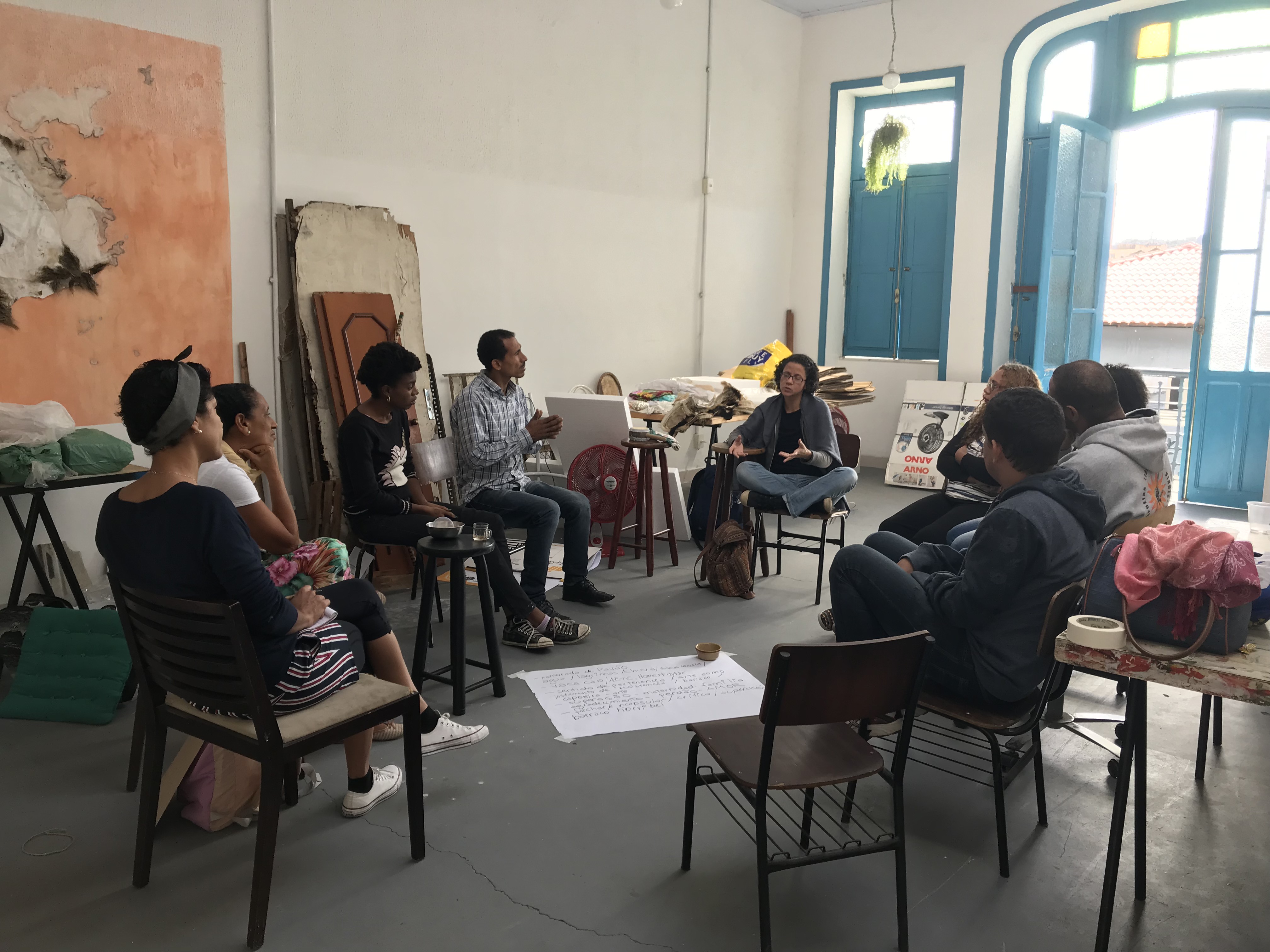
The morning sharing session took about 5 hours, after that we got lunch and returned to the studio. People naturally gathered into groups that shared similar stories and constructed sculptural work that talked about their stories of survival and growth. This process went very fast, as they were very inspired by the morning session. It seems that the words that were expressed created images in the mind of participants, images that were crucial for the work development. It went in a fast tempo. Some took the thematic of the “barraco” as a source of inspiration. The barraco was a very poor construction that served as a house for original favela dwellers in the past.
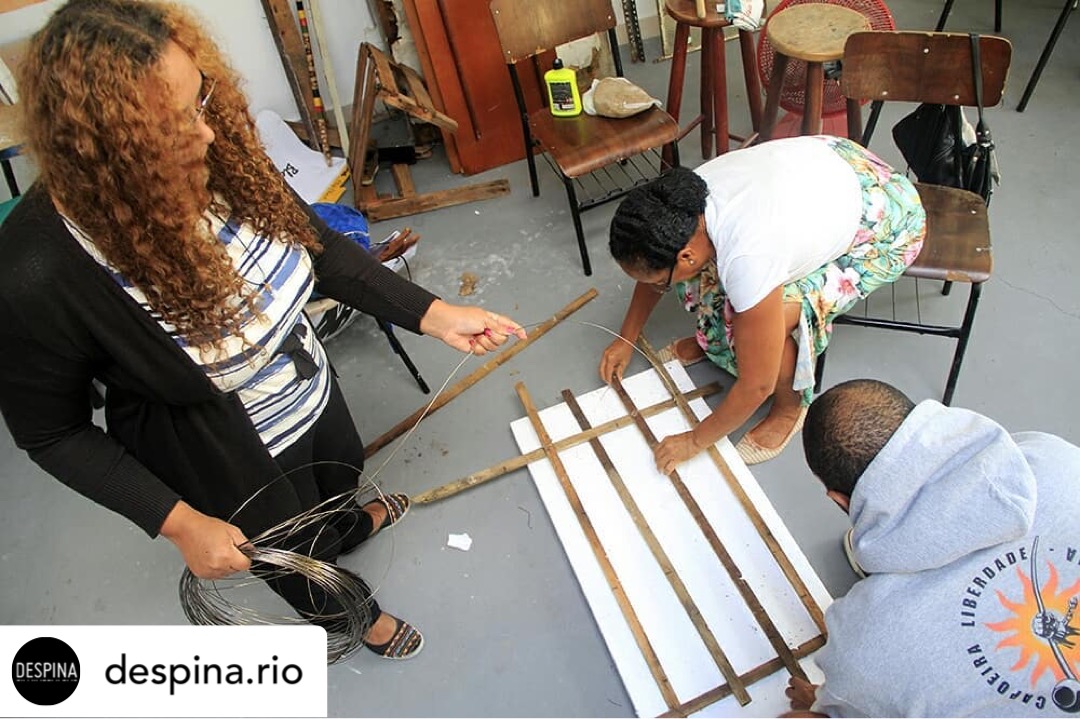
Others constructed a chair symbolising the possibility of growth and self empowerment.
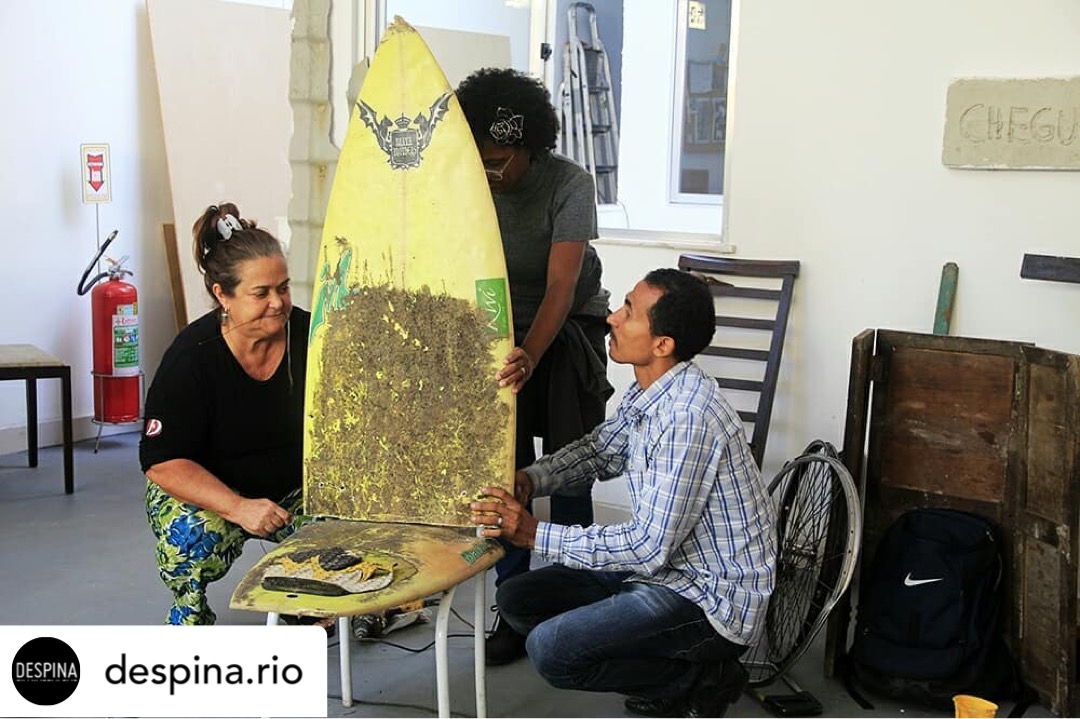
Other group was fixed by the idea of inequality, why some have a bigger house and others a hut in the same city.
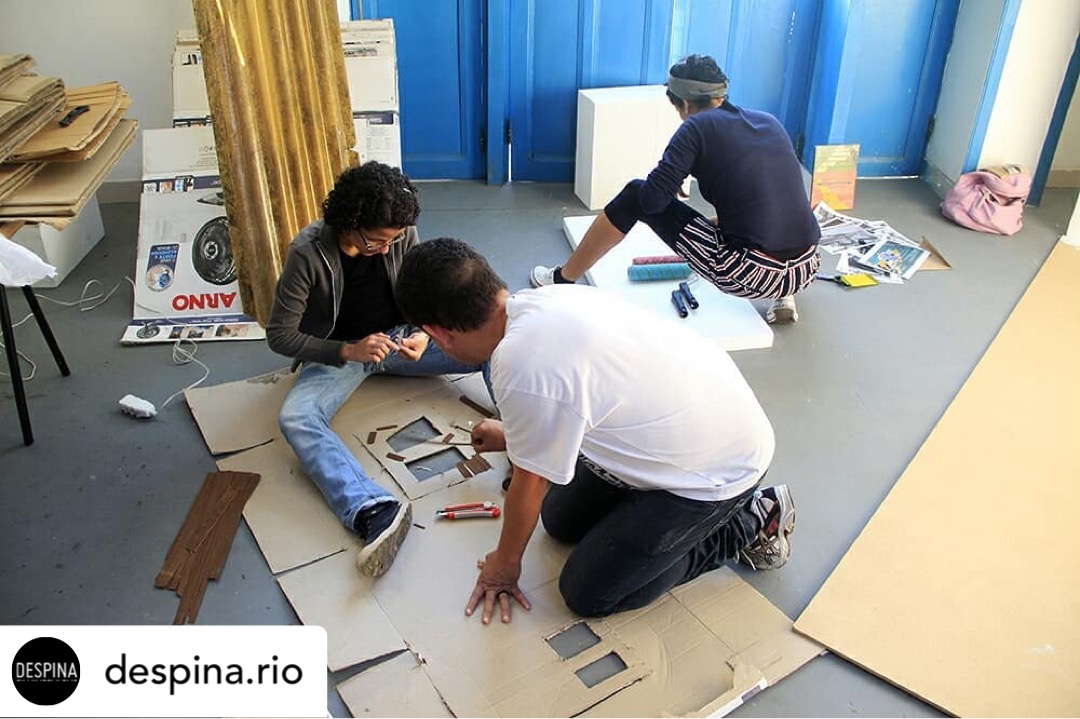
There were two people developing individual works related to equilibrium and symbiosis, more abstract words that reflect about their experience as a “favelado”.
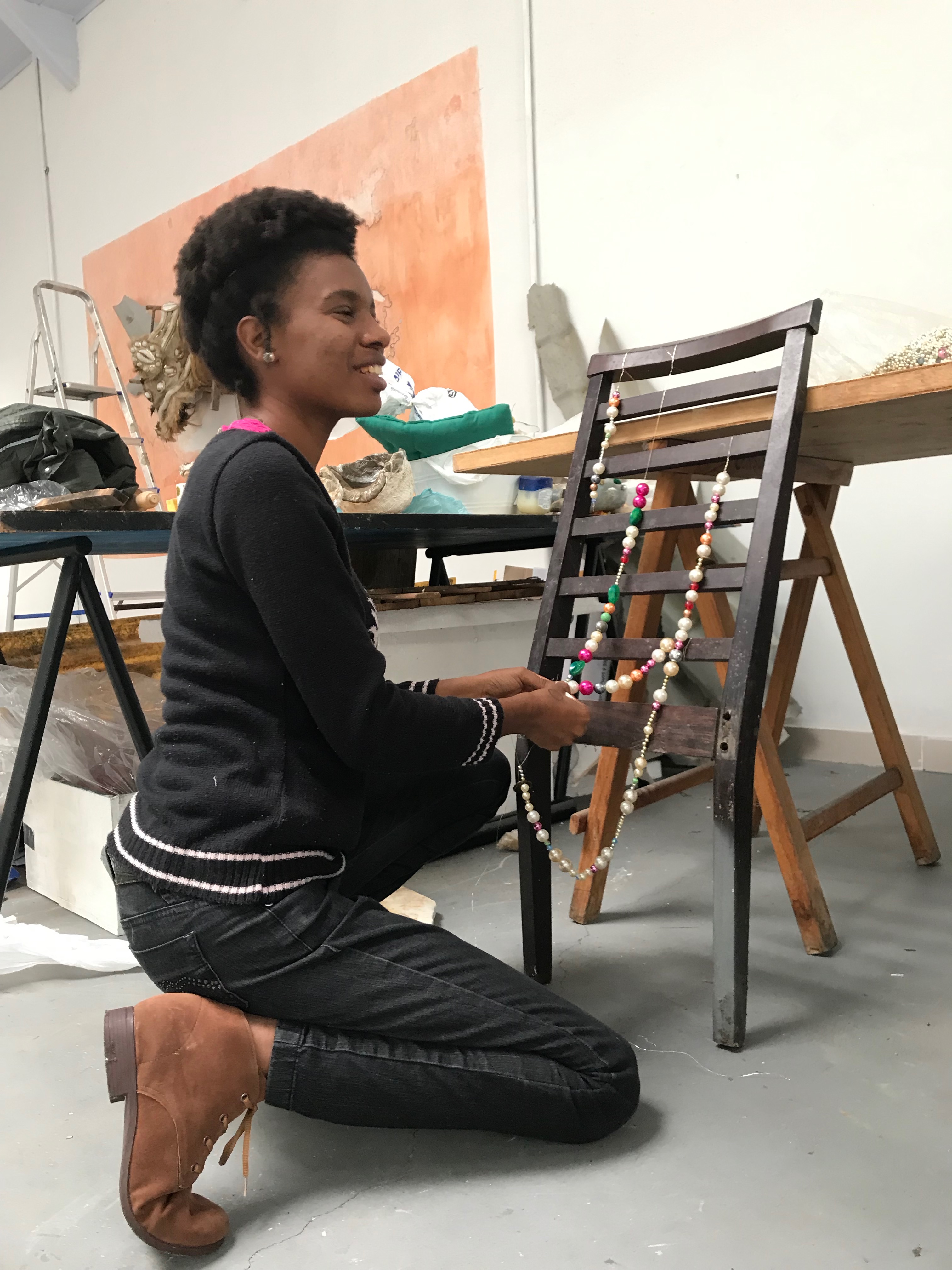
The idea is that all of them will present their work at the next open studio “Senado Tomado” at the end of July. I hope this workshop was just a start for further collaboration with the group. Many have showed interest in a continuation of the project, to give visibility to their story in the city of Rio de Janeiro, using art as a weapon for self-determination and poetics. Making a new project in the city, will be a matter of collectively keeping inspiration, and the power to make dreams come true. It will take some time to gather financial support and all forces, but the will is there, and that is what matters.